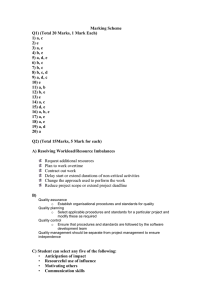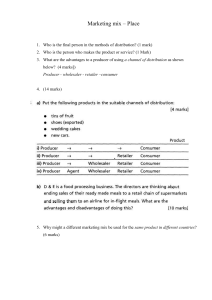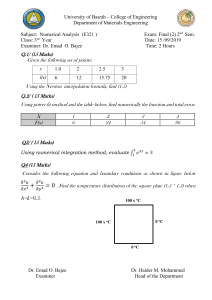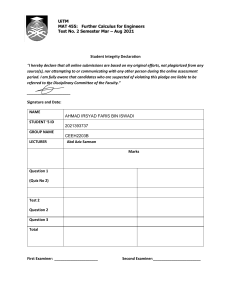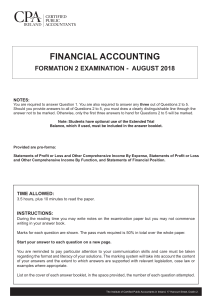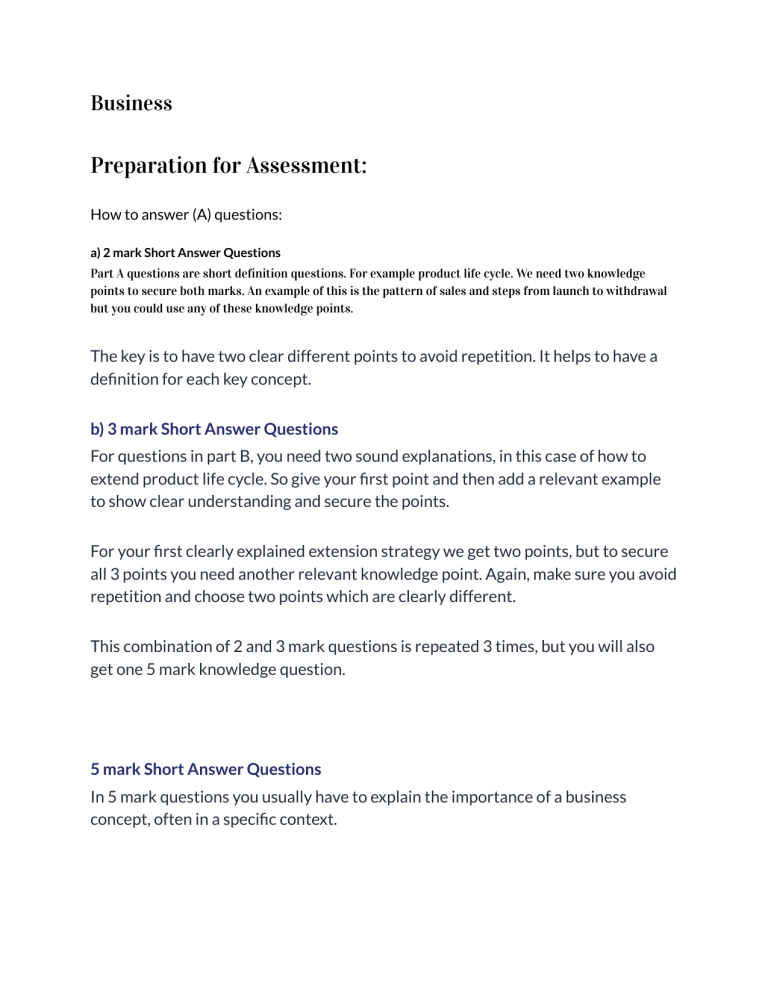
Business Preparation for Assessment: How to answer (A) questions: a) 2 mark Short Answer Questions Part A questions are short definition questions. For example product life cycle. We need two knowledge points to secure both marks. An example of this is the pattern of sales and steps from launch to withdrawal but you could use any of these knowledge points. The key is to have two clear different points to avoid repetition. It helps to have a definition for each key concept. b) 3 mark Short Answer Questions For questions in part B, you need two sound explanations, in this case of how to extend product life cycle. So give your first point and then add a relevant example to show clear understanding and secure the points. For your first clearly explained extension strategy we get two points, but to secure all 3 points you need another relevant knowledge point. Again, make sure you avoid repetition and choose two points which are clearly different. This combination of 2 and 3 mark questions is repeated 3 times, but you will also get one 5 mark knowledge question. 5 mark Short Answer Questions In 5 mark questions you usually have to explain the importance of a business concept, often in a specific context. For example, you may need to explain how the better management of both trade payables and trade receivables can improve cash flow. In order to secure all 5 marks, you must effectively explain both factors. So we start by defining trade receivables, and then explain how better management of trade receivables can lead to improved cash flow. Then trade payables, and then explain how better management of trade payables can lead to improved cash flow. It’s important to stay focused on the question, so you can repeat the question stem, to make sure your answer precisely gives the examiner what they are looking for, and you get all of the marks. That is the short answer questions done, now it’s time for some exam strategy when choosing essay questions in section B. 8 Mark Analysis Questions Unlike paper 2 it’s not specified how many paragraphs you must complete, but from the exemplars provided by Cambridge we can see for A) questions you should be aiming for 3 paragraphs with chains of analysis. If you need to develop your chain of analysis skills, we’ve got a blog that would help you with this. Let’s look at an example for the benefits of motivating employees. Start with the knowledge point, then explain and apply to the business. Although it’s not strictly necessary as this question doesn’t mention a specific business, I like to put in an example as it shows the examiner your understanding and makes it easier to explain your point. Finish by taking the analysis one step further. Remember to include connectives – because, leads to, therefore, so that, as a result, consequently. It shows the examiner you are using analysis or taking analysis one step further. No need for evaluation in this question 12 Mark Evaluation Questions The b 12 mark question is an analysis question plus evaluation. Or to put it simply it’s important but it depends questions. Plan your answer before you begin. The question points you to including two points of view, so make sure you include both for a balanced answer. Aim for two chains of analysis for and against. It’s important to have balance, and show you understand both sides of the discussion. An easier structure to remember might be: It’s important because, and because of this but it depends on this and on this, then finish with an evaluative Comment on what is most important. In this question we will aim for two points on why salary is the best payment method for motivating employees of a shoe retailer. Then two reasons why a salary is may not be the most effective payment method for motivating employees of a shoe retailer. Work through the chain of analysis in each paragraph. To secure the evaluation marks you need a reasoned recommendation in context. Check out this blog on evaluation. It is the most challenging skill, so I won’t go into it too much detail here. The key is to move beyond analysis and make substantiated judgements or recommendations. Remember to focus on the question to ensure you answer is in context, but you can also evaluate by explaining how your judgement will depend on other important factors. In this example, I have evaluated by explaining the most important factor in motivating employees will depend on the individual, as all employees have individual needs. Salary is important but must be part of a package of different financial rewards to ensure all employees are motivated and perform to their full potential. Common traps to avoid in evaluation are writing a summary of what you have written earlier in the essay, or basing your answer on opinions rather than reasoned argument or evidence.

